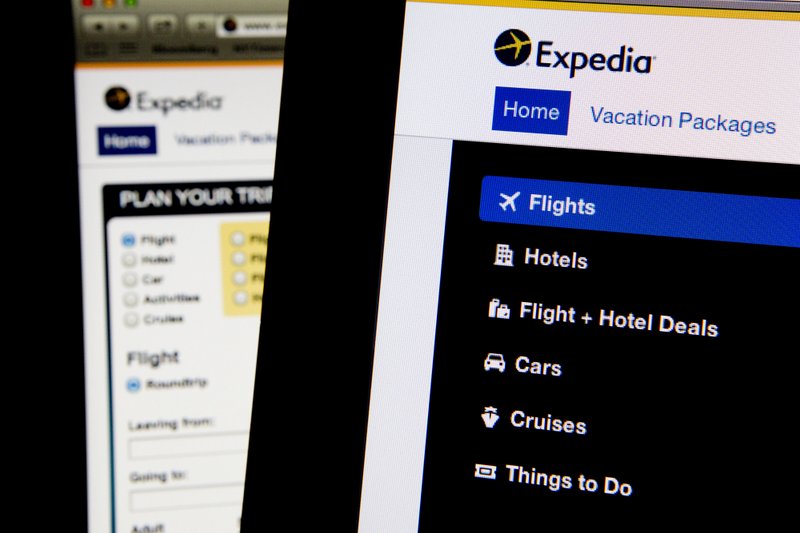Travel booking giant Expedia has websites in more than 35 languages, makes at least 40 percent of its revenue outside the U.S. and has offices in 30 countries. Still, that's not global enough for new Chief Executive Officer Mark Okerstrom.
Okerstrom, who took over at the end of August when Dara Khosrowshahi left to lead Uber Technologies, wants to make Expedia a household name for European and Asian travelers looking for hotels in their own regions. Historically, Expedia has gotten the bulk of its revenue from Americans using the site to book domestic and foreign travel.
"We have to do a better job being a global player -- and not just global in terms of having more countries in our investor relations presentation," Okerstrom said in an interview. "We are significantly under-indexed in every major market with the exception of the U.S."
Okerstrom's comments come as his company's arch-rival, Priceline Group Inc., is turning up the heat for Expedia's domestic business by spending heavily on ads for its Booking.com travel site, which already dominates Europe. Chinese travel giant Ctrip.com International Ltd. has also been asserting itself internationally, agreeing to buy Scottish flight booking site Skyscanner last year for $1.7 billion.
Okerstrom called out Europe as a key market. "Europe is highly interesting to us," he said. "We've got a huge opportunity to become much more locally relevant for the European customer."
Staking out more of a presence outside the U.S. isn't the only challenge Okerstrom, 44, is facing.
Expedia's HomeAway unit is in a race with Airbnb Inc. and Priceline to capture as much of the fast-growing home rental market as possible. Right now Expedia is primarily focused on upgrading HomeAway's technology and getting more of its properties on Expedia's main booking sites. The next step is pushing into urban markets, where Airbnb has a sizeable lead, Okerstrom said.
Okerstrom joined Expedia in 2006, shortly after Khosrowshahi became CEO and the company spun out from IAC/InterActiveCorp. A Canadian by birth and lawyer by training, he worked his way up the ranks and was named chief financial officer by 2011. He was closely involved with Expedia's acquisition spree over the past few years, including the purchases of Orbitz.com and HomeAway.
Khosrowshahi had already pivoted Expedia to focusing on integrating its acquisitions rather than hunting for more mega-deals. Okerstrom said he'll continue on that path. "My focus will be very much operational," he said. Still, acquisitions could play a role in the renewed push into global markets, Okerstrom said.
Okerstrom also must address new threats confronting the 20-year-old online travel market, which has largely kept the same business model even as other sectors of the internet, like online search, e-commerce and social media, radically changed.
One big challenge is Google, which has expanded more into travel services and gets about $14 billion in revenue from the sector each year Skift Research estimates. That's more than Expedia and Priceline.
"We're kind of playing both sides with them, keeping a wary eye on what they're doing but also working closely with them to work on areas of mutual interest," Okerstrom said of Alphabet Inc.'s Google.
SundayMonday Business on 02/25/2018
